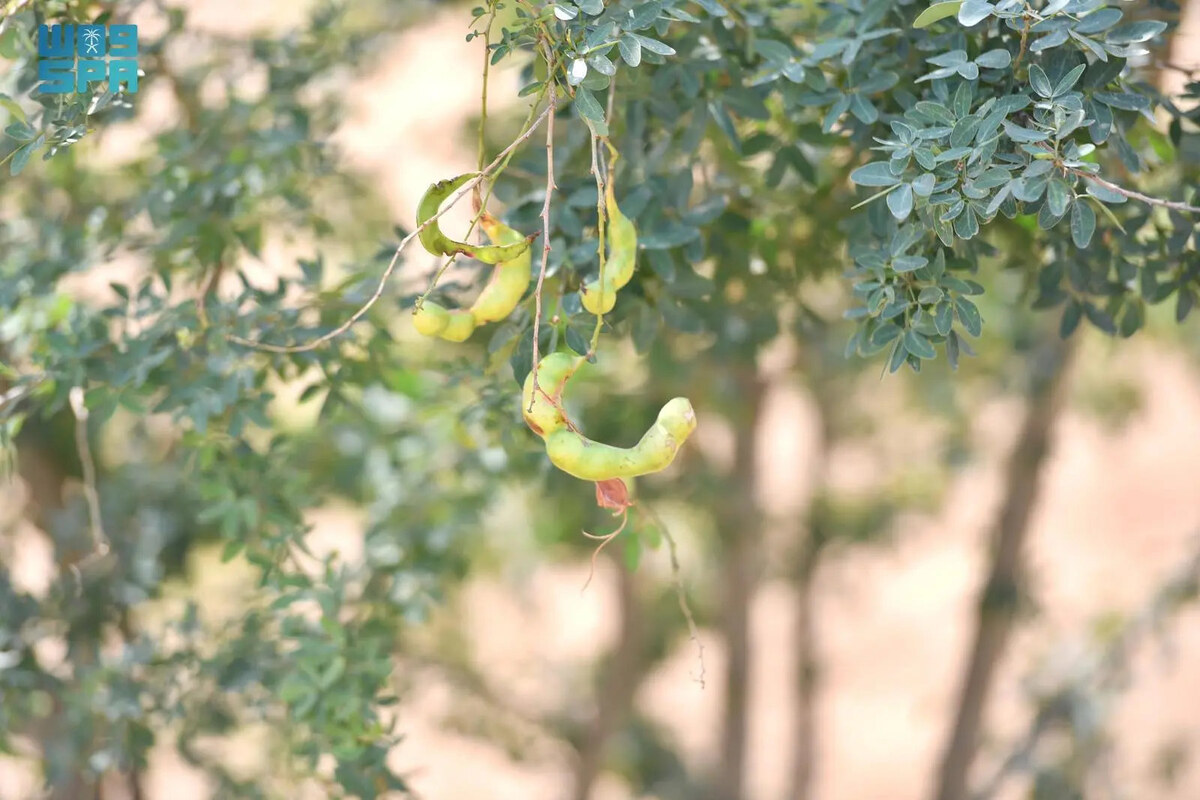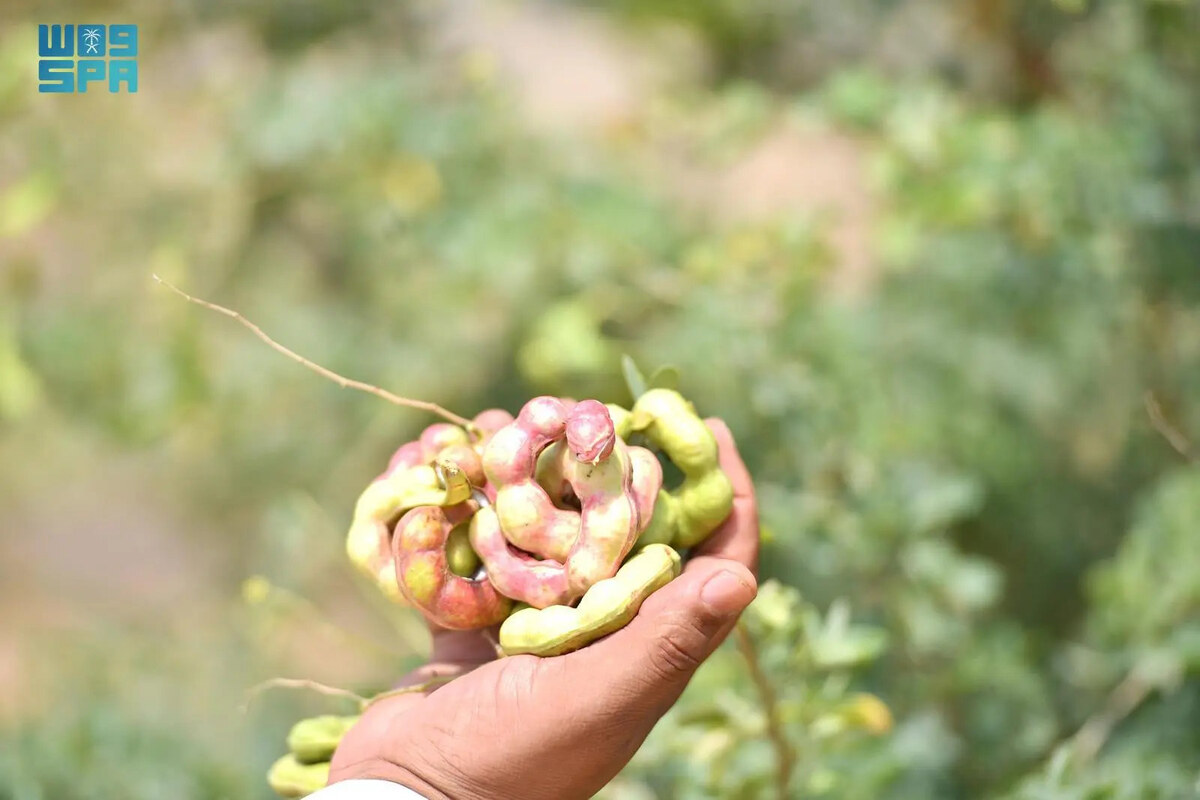RIYADH: In a bid to preserve and celebrate its rich cultural heritage, the Saudi Heritage Commission has cataloged more than 194 archaeological and heritage sites across the Baha region. These sites, including 72 traditional villages, have been classified and labeled with “barcode” plates, as outlined by the Heritage Commission’s data.
In Baha, picturesque scenes unfold as traditional villages and ancient structures dot the landscape, weaving through rugged terrain, vast expanses and diverse climate. These sites stand as testaments to a rich historical legacy, blending tradition, culture and craftsmanship.
Serving as vital components of national identity, the sites showcase a mosaic of cultural and social diversity while contributing significantly to the economy. They have also become magnets for travelers seeking to unearth the secrets of ancient civilizations crafted centuries ago by human hands.
The villages and historical landmarks stand as awe-inspiring testaments to ancient architectural prowess, with their homes, mosques, castles and forts echoing the rich heritage of bygone eras. Utilizing locally sourced materials such as stone, timber and sand, the inhabitants crafted roofs, pillars, doors and walls that seamlessly blend with the natural landscape.
Indigenous trees like juniper, spiny jujube (ziziphus spina christi), acacia and wild olive were skillfully shaped into intricate designs, their surfaces coated with a black tar. As time passed, the hues of these engravings evolved, adding depth and allure to the structures. Moreover, the construction also features granite and basalt rocks, adorned with exquisite marble accents, further enhancing the architectural marvels of the region’s historical sites.
Under the patronage of Prince Hussam bin Saud bin Abdulaziz, the governor of Baha, historic villages and sites in the region are receiving heightened attention and support. Prince Hussam has often emphasized the importance of these cultural riches in conserving the region’s history and contributing to national identity.
In his statements, Prince Hussam emphasizes the rich historical narrative buried in these sites, as well as their significance in communicating the tale of the region’s past and identity. He also highlights the abundance of archaeological and heritage villages scattered throughout the rugged landscapes of Baha, spanning from the highlands to the Tihama sector.
The governor advocates for the meticulous preservation of these villages, calling for collaborative efforts between government bodies, led by the Heritage Commission, and the local community, such as the development initiatives in several heritage villages that have been transformed into vibrant tourist destinations. Notable examples include the Thee Ain archaeological village, Al-Atawlah village, Al-Abadil village and Al-Mousa village.
These revitalized sites have become focal points for national tourism that extend a warm invitation to visitors and residents alike to delve into the rich tapestry of heritage nestled within the heart of Baha.
Mohammed Salem Al-Ghamdi, an elder in the region well versed in the architectural legacy of the area, said: “Since time immemorial, our ancestors have demonstrated a remarkable penchant for constructing stone and mud dwellings in close proximity, their shapes ranging from squares to rectangles or triangles, dictated by the landscape’s contours. These abodes typically feature two stories, with the ground level dedicated to livestock and provisions, while the upper floor serves as living quarters. The maze-like alleys and pathways foster a sense of closeness among residents, nurturing bonds of unity, affection and friendship.”
Al-Ghamdi said that the heritage villages stand as testaments to the resourcefulness of ancient civilizations, despite their limited means.
Moreover, the historic edifices in Baha echo with tales and anecdotes that chronicle pivotal moments in human civilization, serving as invaluable records of cultural evolution. They not only celebrate the region’s rich cultural heritage, but also exemplify the architectural brilliance of bygone eras.
In the picturesque village of Thee Ain nestled in Al-Makhwah, a tale unfolds through its bustling construction, as recounted by Yahya Al-Aref, a native of the village. With a history spanning more than 400 years, Thee Ain contains about 58 ancient stone houses, some intricately carved into the rugged mountainside. Earnestly dubbed the “Marble Village” for its distinctive architecture, these multi-story residences stand as silent witnesses to centuries gone by.
Surrounded by lush palm groves, banana plantations, fragrant basil and citrus trees, Thee Ain emanates an aura of authenticity, weaving together rich heritage, ancient origins and breathtaking aesthetics.
The heritage village of Al-Atawlah holds its own narrative. It is home to the Rubuh Quraish Market and the fortress of the Al-Othman sheikhs, along with the region’s first formal school.
Adjacent, the historic mosque, a centerpiece of the village, is undergoing a revival under Crown Prince Mohammed bin Salman’s initiative aimed at revitalizing historical mosques.
Venturing further, neighboring villages like Al-Khalaf and Al-Khalif unveil their own treasures, and are renowned for ancient Islamic inscriptions etched into basalt stones, including verses from the Qur’an and timeless supplications. Similarly, the cultural tapestry of Al-Mousa and Matair Al-Aish reverberates with echoes of history, each boasting a significant heritage waiting to be discovered.
Amid the heritage villages, a tapestry of historical richness unfolds in the region, showcasing not only quaint settlements, but also a treasure trove of historical sites. One such gem is the palace of Bin Raqoush nestled in Bani Saar, to the north of Baha. Erected in the year 1249 AH, the palace comprises five grand houses, some soaring to three floors, each intricately crafted in a distinctive architectural style.
A symphony of heritage unfolds within, featuring a tribal council chamber, an adjoining mosque, servant quarters, a wellspring of water and an intimate inner courtyard. Two additional houses encircle this palace, collectively forming a harmonious residential complex.
Further enhancing the historical mosaic is the Bakhrush Fortress, positioned in the northwest of the Qura governorate. This ancient citadel, with its soaring walls and twin towers, stands as a sentinel to the region’s storied past.
Meanwhile, the Al-Akhawayn Fortress surveys Al-Malad village with steadfast pride, perched atop a lofty hill and flanked by venerable heritage houses. Adding to this historical tapestry is Al-Ayed Heritage Guesthouse in Bani Kabir village, a haven of heritage museums that narrate the rich history and cultural legacy of the region.
These living artifacts, be they villages or historical sites, find themselves under the watchful eye of relevant authorities, with the commission spearheading efforts to breathe new life into these historical marvels.
Initiating a phased restoration of Thee Ain heritage village, the commission aims to secure its nomination for UNESCO’s prestigious World Heritage list. Simultaneously, significant attention has been directed toward revitalizing the Bin Raqoush Palace and turning it into a vibrant tourist destination.
Central to these endeavors is collaborative engagement with local communities, ensuring that restoration activities align with their needs and aspirations. This inclusive approach serves a dual purpose: Strengthening Saudi cultural identity while fostering a deeper sense of national cultural awareness and safeguarding heritage and social values.
Ali bin Mohammed Al-Suwat, mayor of the Baha region, underscores the region’s commitment to enhancing its heritage sites. This encompasses infrastructural improvements, aesthetic enhancements and the development of access routes. Municipal efforts are concentrated on the rehabilitation and paving of roads leading to these cultural treasures, accompanied by the installation of lighting infrastructure.
These initiatives not only accentuate the charm of heritage villages, but also cater to the region’s tourism and heritage development objectives.
Recent projects have seen pathways in heritage villages adorned with natural stone, covering extensive areas of more than 4,000 square meters. Furthermore, the installation and upkeep of more than 235 lighting poles along the pathways have illuminated the historical sites. Notably, with more than 900 square meters of electrical cables laid, 250 decorative external lighting fixtures have been strategically placed in prominent heritage sites such as the As-Sawad, Al-Hillah and Al-Abadil villages.
Revival of historic sites captures Baha’s timeless charm
https://arab.news/yfu3h
Revival of historic sites captures Baha’s timeless charm

- Serving as vital components of national identity, the sites showcase a mosaic of cultural and social diversity while contributing significantly to the economy
- The villages and historical landmarks stand as awe-inspiring testaments to ancient architectural prowess


































